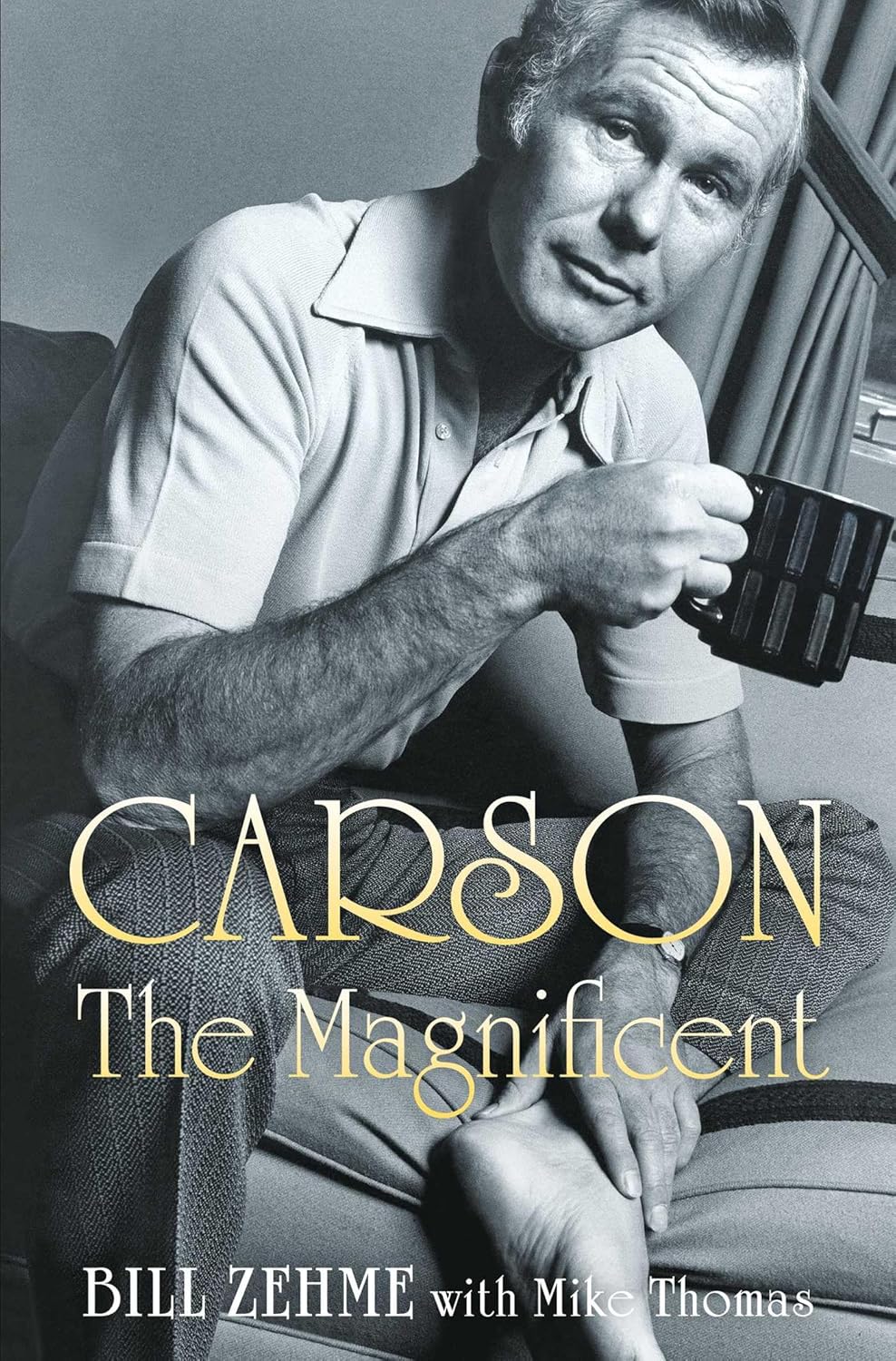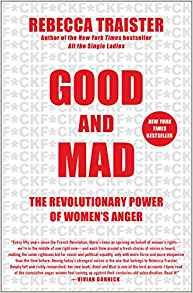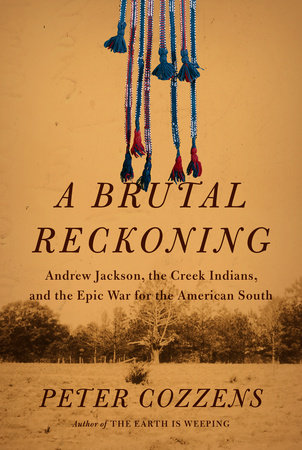Carson the Magnificent
- By Bill Zehme with Mike Thomas
- Simon & Schuster
- 336 pp.
- Reviewed by Randy Cepuch
- November 13, 2024
Heeeeeeeeeeeeere’s Johnny!

Curious how many biographies of Johnny Carson preceded this one, I did a little research and learned that it’s probably more than 130 — including one by Carson’s career-long sidekick, Ed McMahon. I’ve read none of them, but it’s hard to imagine any would or even could compete with Carson the Magnificent.
This book is an elegant account of the unparalleled late-night-TV host, including this description of how he spent nearly 30 years putting America to bed:
“His was the last face flickering onto the brain before so many billions of slumbers. Quite literally, he launched the dreams of generations, as no golden Hollywood dream merchant might have fathomed, even in metaphor.”
While it’s clear that Carson was author Bill Zehme’s hero — Zehme was such an admirer that he chose the name “Monologue” for a column he wrote in his high-school newspaper — the book doesn’t sidestep the star’s problems with drinking and divorces. (Indeed, it suggests that Carson’s ability to seemingly “shrug off the stigmatic slings of divorce” by making fun of himself may have helped others to do so, too.)
Carson retired in 1992 and passed away in 2005, so why is this book appearing only now? It’s complicated. For many years, Carson resisted any such project. Zehme managed to get a rare interview in 2002 for Esquire and stayed in touch. He signed a book contract in 2005, after Carson’s death, then worked on it for nearly a decade, obsessed with collecting every bit of information and interviewing all possible sources. “What if I’m missing something?” he worried.
The manuscript was three-quarters complete when Zehme was diagnosed with cancer and needed to focus on that battle, which he lost in 2023. His research assistant, Mike Thomas, completed the work.
The book’s title is a nod to Carson’s lifelong fascination with magic and magicians. As a kid in Nebraska, he performed tricks for family and friends as “The Great Carsoni,” mastering the stagecraft he used with television audiences while still a college student. (His senior thesis at the University of Nebraska was called “How to Write Comedy Jokes.”)
Although it’s entirely possible, maybe even probable, that Carson would’ve become famous in any case, we owe thanks to Red Skelton. After moving to L.A., Carson became a writer for Skelton’s eponymous show on CBS. Then, one day in rehearsal, Skelton walked into a brick wall and later told this story:
“While I was in my semiconscious state — which is pretty hard to tell with me — I suggested that I couldn’t go on that evening, but there was a young writer on the show with a great sense of humor who could take my place. If I had been completely conscious, I probably would have put him under contract for life. But he went on, and they called it an overnight sensation, which means you have to be in this business for ten years...”
Carson had a mere 90 minutes’ notice and winged it so successfully that, weeks later, the network sent him to New York to do two weeks guest-hosting “The Tonight Show” while then-host Jack Paar was on vacation. The die was cast.
There were other programs, ranging from a sleazy game show called “Earn Your Vacation” to something called “Carson’s Cellar.” During one episode of the latter, a stagehand accidently walked onto the live set, and Carson covered by saying, “That’s our guest for tonight, Red Skelton. No time to talk with him.” Skelton saw it and offered to be a real guest. He appeared in several episodes sitting behind Carson, who would occasionally turn around and say, “Who are you?” When Skelton identified himself, Carson scoffed, “A likely story!”
Carson took over “The Tonight Show” in October 1962, with Groucho Marx spending the first 15 minutes of the then 105-minute broadcast introducing the new host and the ever-faithful McMahon. (Amazingly, as a child, Carson practiced ventriloquism and named his dummy Edward.)
Over the next three decades, Carson began each show with a monologue:
“He sets forth, as required...fresh items of public and personal interest, inserting at will or at whim contemplative pauses, defensive asides, wounded grimaces, cackles of self-mockery and a kaleidoscope of perpetual hand movements — punctuation marks all, ineffably precise at every turn.”
Then, he’d swing an imaginary golf club and head to his desk to preside over interviews with every famous person imaginable, do silly skits with McMahon, poke shamelessly at his employer (mocking NBC as “the company with a heart”), and put up with all sorts of indignities from animal guests. When he was really impressed by guest comedians, he’d invite them to take a seat on the couch — a royal blessing that launched the careers of David Letterman, Drew Carey, Roseanne Barr, Jerry Seinfeld, and Joan Rivers, among others.
Along the way, viewers got to know a lot about Carson; as the book observes, he told many stories of his life on the program, “eking out, via chatty dollops of personal history, the autobiography he refused to write.”
Short of sitting down and watching some of the more than 5,000 hours of Carson’s run on “The Tonight Show,” reading Carson the Magnificent might be the most entertaining way to learn about — or happily revisit — the most influential late-night host ever.
Randy Cepuch is a member of the Independent’s board of directors and a longtime book reviewer.

